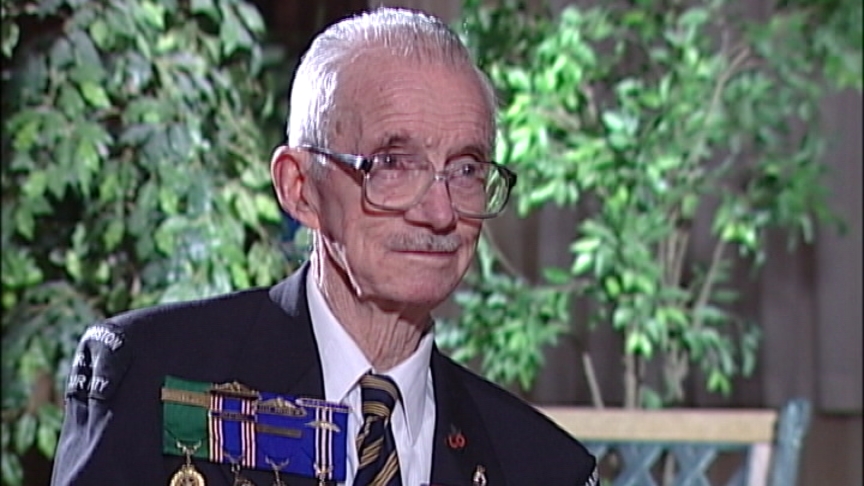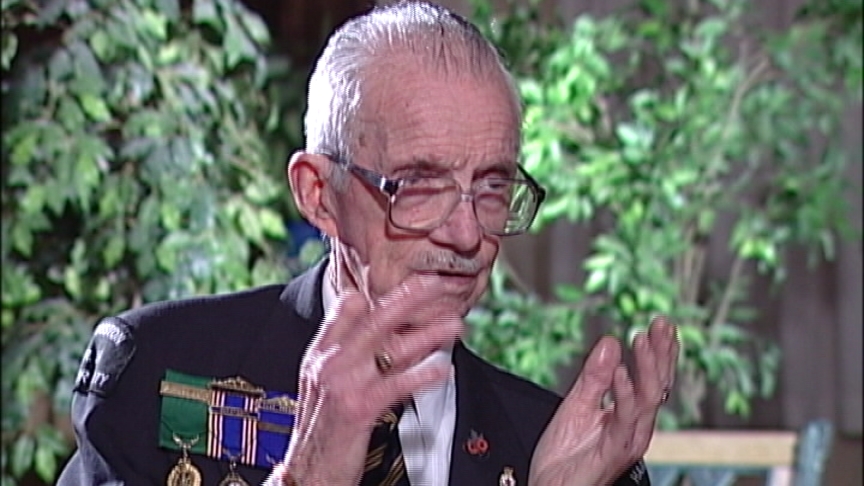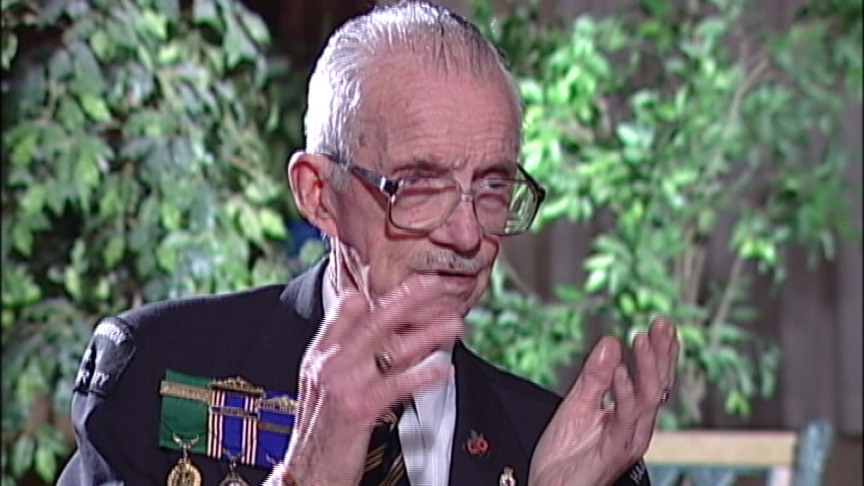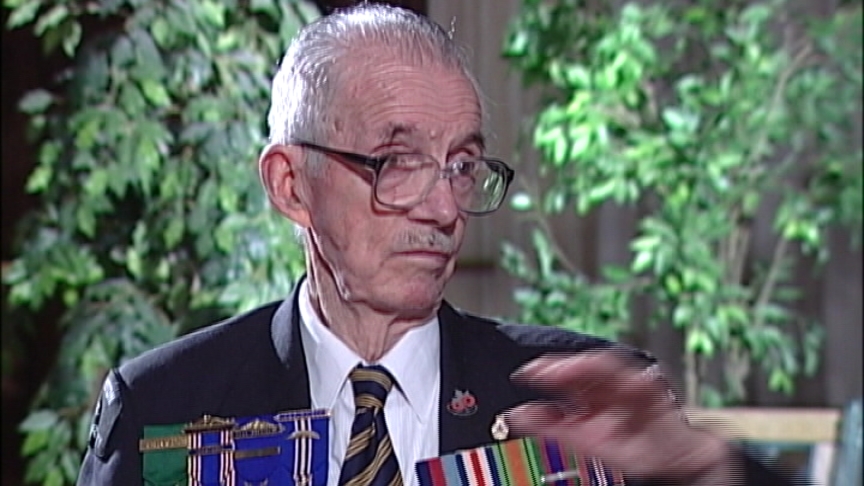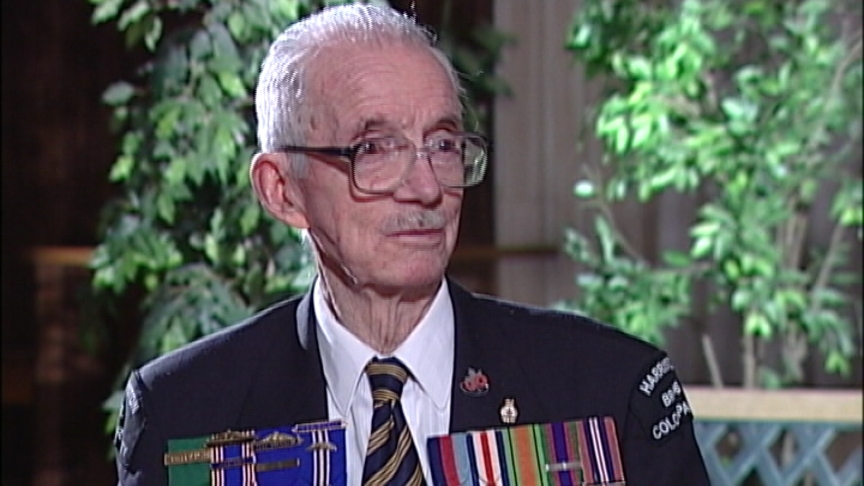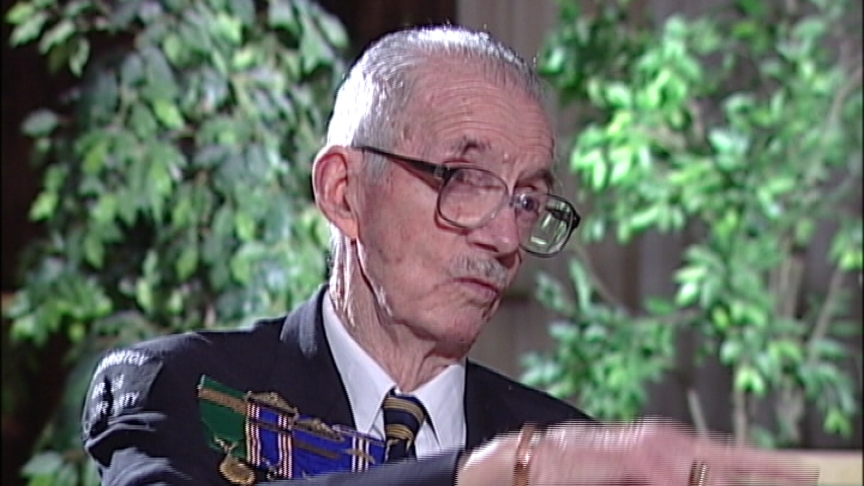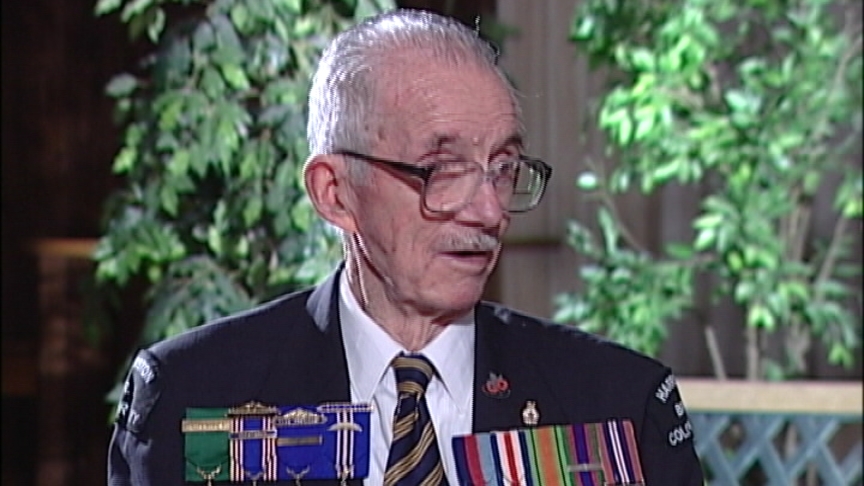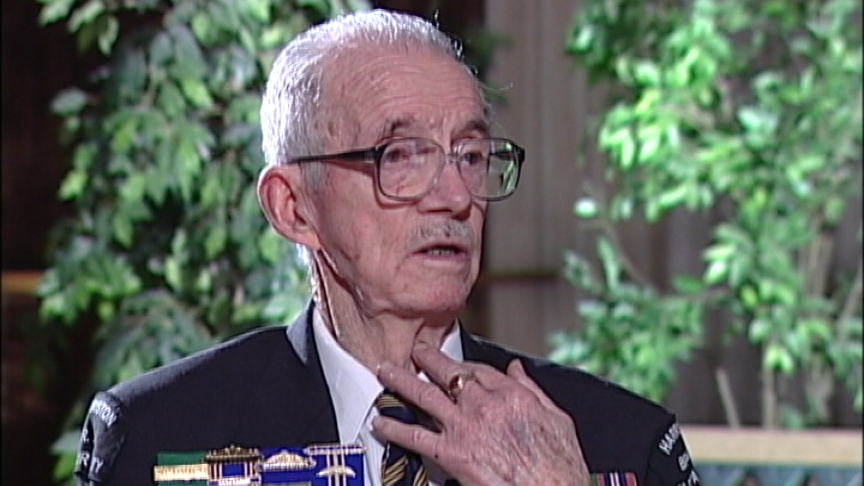You’re supposed to step down.
Heroes Remember
You’re supposed to step down.
Well the shells are about that long,
and they go into a ... the platform of the cage,
it goes into a cage. I think it, if I'm right,
I think it holds about six, six shells at a time.
And then there's ... I should had an old gal
dang picture of the gun here,
but I didn't think of bringing it. And there's six
or seven guys in charge of the gun.
There is a guy, there's a lance bombardier and
then there's a guy on the left side of the gun,
and a guy on the right and they raise,
raise or lower the gun.
And then there's a platform here in the middle.
Middle, he's the guy that fires the gun.
And then there's two or three guys on the
ground and they keep, they keep throwing
up the shells, and shells to number four.
And if there is a misfire say, if the,
if number 4,if the lance bombardier
were in the Sergeant, tells , tells 4 to fire,
and the gun don't go off,
they're supposed to step down,
down and don't open the, open the cage
for him and then they're bullets are in,
within 2 or 3 minutes, because it still..
it still could go off. The evening of the
crossing of the Rhine, we were brought up,
well up, well not too, too close to the Rhine,
with all our ack-ack guns.
And there was artillery shells which
were higher than the, than the ack-ack.
And then there was the big ones,
way back and when they started,
when we started firing, it was hell.
The god damn smoke, you,
smoke from them there shells.
All these here big, big guns firing over us.
And one of our guns, I'm pretty sure it
was the evening of the Rhine,
but I could be wrong but anyway,
one of the gun, gun, gun crews in a
different troop did, did have a misfire.
And the Sargent, right away jumped up and
got the cage open, she blew, right in his face.
Well when the firing was all over, we heard
about this and there was an old barn, not,
not to far, they carried him over to the
barn and you never saw such a gal dang
mess in your life, his whole face.
Although, although it didn't kill him,
but he was brought back to England and
never, never went over again.
Related Videos
- Date modified:



